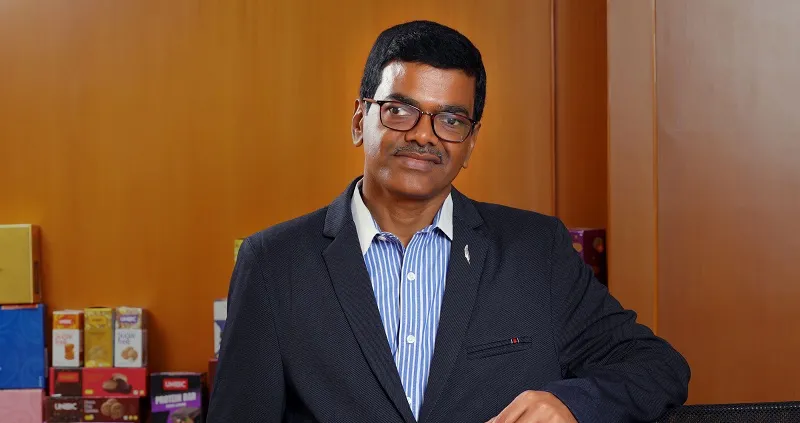How Unibic India’s management clocked Rs 500 Cr revenue and reached 3 lakh retailers
As a tribute to its founder who passed away in November 2019, the management of the cookie brand registered Rs 500 crore revenue and is now present in 27 states of India.
Last year, in November, the founder of India, Nikhil Sen, passed away suddenly. He left behind a 15-year-old legacy of a popular cookie brand, which was acquired by Peepul Capital in 2012. Nikhil Sen had built the company into a Rs 380 crore brand.
Srini Vudayagiri, a partner at , took over the business as CEO in 2019. The company has reached Rs 500 crore revenue.
“We are extremely cash efficient in our approach. The company has been profitable for many years now. We do know that we are competing with big brands. I have a huge responsibility of running Peepul Capital and Unibic India, says Srini.
He adds, "I remember, when working with Nikhil, we went after this fantastic opportunity of building a brand for India. In 2012, we were a sub Rs 50 crore brand and now we have grown ten times. The biggest thing for a consumer company is that we have to convince customers that we have a great product".

Srini Vudaygiri, CEO of Unibic
Back in 2012, it was a small team and was very innovative. Srini was part of the board since 2012 and was part of every strategic investment made. Unibic India went from being a south Indian brand in 2012 to three lakh retailers across the country in 2020.
“It was unfortunate to lose Nikhil. It was a harsh reality and I had to take over in November. The journey has been smooth. As a tribute to Nikhil, we did the highest brand production in the month he died and in the same month we launched a new cream wafer brand. In May 2020, we achieved full capacity at the plant during the slowdown. That shows consumer confidence in the brand because we are at 100 percent capacity to meet the consumers’ needs,” says Srini.
A brief history
In its 15-year history, Unibic India was cash-strapped for three years between 2010 and 2012. There was a reason and that takes the story back to 2005 when the company was founded by Nikhil in association with Michael Quinn, the founder of Unibic Australia.
The Australian entity was a contract manufacturer and the Indian entity made its own cookies and became a brand. But when the Australian unit was making losses, it wanted to pull out of the Indian side by 2010. In 2013, Peepul Capital acquired majority stake in Unibic India along with VC firm Lighthouse.
With this, Unibic India became a completely independent unit with no connection to its Australian partner. As revenues grew in Unibic India, Peepul Capital acquired the stake of Lighthouse and increased its holding to over 90 percent in the company. The rest of the stake is held by Nikhil Sen’s family.
Today the company has the largest wire cut cookie manufacturing plant in India, located in Bengaluru. The company can manufacture 100 tonnes of cookies per day. Ninety-eight percent of its capacity is used to manufacture its own brand and only two percent is used to manufacture for private label brands like CCD and Indigo Airlines. Peepul Capital has invested $11 million in the operations of the business so far.
The business
The coronavirus pandemic has adversely impacted many businesses. But being a food company, Unibic saw a rise in demand. The company managed workforce availability and supply chain. When the pandemic broke out, they had a local base of 400 workers and it did not affect the business as people did not leave work during the lockdown.
The company worked with the local authorities to get permits to help employees come to the factory and also allow the supply chain to function smoothly. The company proactively worked with distributors and logistics companies during the COVID-19 situation to dispatch items on time and used technology to provide items to small stores.
“We worked with logistics tech companies to reach out to our ecosystem. Smaller truck owners were hit so we had to work with the larger companies to take our product to distributors and then to retailers. This helped us not lose sight on how to reach our end customer, says Srini.
"We worked with tech B2B players like Shopmatic, Jumbotail and Udaan to reach out to kirana stores in time. Today we are the first to be on pilot with JioMart in Navi Mumbai and they were piloting from last year,” adds Srini.
The company says it is facing trouble in reaching north-eastern states, Maharashtra, and Jammu and Kashmir due to the ongoing COVID-19 pandemic.
The company built the southern operations between 2004 and 2013 and then went after other markets. Back then, 75 percent of their revenue came from the south. After that they went to the west and north. They appointed local regional managers and started moving to micro markets by working with distributors who could sign up many more retailers.
The brand has 1,000 distributors and three lakh retailers. It makes cookies, snack bars and wafers and has 30 variants and 100 stock keeping units.
“We got the product and quality right before we started communicating to consumers. We have not advertised much but have put some money around marketing. We have been targeting above the line, TV and print, and were sponsor for a TV show. We do a lot of digital marketing especially during COVID-19 times,” says Srini.
The company sells on ecommerce platforms too and is experimenting with it because it believes post-pandemic the demand for digital marketing will go up. But today, most of its business comes from its physical retail business that is operational in 27 states.
“Cookies have a shelf life of six months and I can take the product to stores in ten days from production. This is because of our supply chain efficiency and the capability of our team. We adopted a lot of new technologies early on and have focussed on quality. That’s why we have been able to scale ten times in eight years,” says Srini.
The retail market in India is estimated to reach $1.1 trillion by 2020 from $840 billion in 2017, with modern trade expected to grow at 20-25 percent per annum, which is likely to boost revenue of FMCG companies. Revenue of FMCG sector reached Rs 3.4 lakh crore ($52.75 billion) in FY18 and is estimated to reach $103.7 billion in 2020. FMCG market is expected to grow at 9-10 percent in 2020.
Unibic India says that its R&D continues to work on 100 products in a year and chooses the one that makes the most sense. At this point of time it has focussed on sugar free and healthier cookies with the launch of the chyawanprash cookie.
“Our CAGR will be about 15 percent and if we continue to grow at this rate, we can double our revenue in three years. We are thinking of capacity expansion too and will be setting up a factory in Hyderabad,” says Srini.
Edited by Javed Gaihlot









